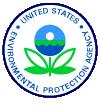Independent Laboratory Institute Efforts to Mobilize the Environmental Community to Work Collaboratively with Government Agencies
Oral Presentation
Prepared by D. Friedman1, M. Flournoy2, D. Kennedy3, J. Konschnik4
1 - Independent Laboratories Institute, David Friedman Consulting LLC, 10817 Rippon Lodge Drive, Fairfax, VA, 22032-2931, United States
2 - Eurofins Frontier Global Sciences, 1170 North Creek Parkway, Bothell, WA, 98011, United States
3 - David Kennedy & Associates, 1583 Redford Drive, Palm Springs, CA, 92264, United States
4 - 4Restek Corporation, 110 Benner Circle, Bellefonte, PA, 16823, United States
Contact Information: friedmanconsulting@cox.net; 703-389-3821
ABSTRACT
The Independent Laboratory Institute (ILI) is a 503(c)(3) not-for-profit scientific educational organization established in 1991 that is multi-disciplined and member-driven. Its goals include: providing quality training for the laboratory community; helping advance the state of the art in environmental, food, and pharmaceutical testing; helping to foster a collaborative relationship between industry and government to improve the quality of regulatory testing; and improving laboratory productivity. While ILI's membership is primarily composed of members of the commercial laboratory testing community and instrument vendors and other organizations that support the testing industry, its programs and efforts serve to also bring together persons in federal, state and local government organizations involved in regulatory monitoring as well as members of the non-commercial testing community and academia.
This presentation will briefly review the history and status of: (a) ILI efforts to advance monitoring technology by helping update Agency legacy methods; (b) develop and validate a generic protocol for the use of Solid Phase Extraction (SPE) as a technique for concentrating chemical contaminants in aqueous samples; (c) organize and host workshops to help EPA address issues and problems facing the monitoring community; and (d) help mobilize the private sector to provide, on a volunteer basis, to government agencies data and other information they need to address problems and issues facing the testing community.
The presentation will discuss ILI efforts to expand these efforts by reaching out even more broadly to members of the public and private sectors.
Oral Presentation
Prepared by D. Friedman1, M. Flournoy2, D. Kennedy3, J. Konschnik4
1 - Independent Laboratories Institute, David Friedman Consulting LLC, 10817 Rippon Lodge Drive, Fairfax, VA, 22032-2931, United States
2 - Eurofins Frontier Global Sciences, 1170 North Creek Parkway, Bothell, WA, 98011, United States
3 - David Kennedy & Associates, 1583 Redford Drive, Palm Springs, CA, 92264, United States
4 - 4Restek Corporation, 110 Benner Circle, Bellefonte, PA, 16823, United States
Contact Information: friedmanconsulting@cox.net; 703-389-3821
ABSTRACT
The Independent Laboratory Institute (ILI) is a 503(c)(3) not-for-profit scientific educational organization established in 1991 that is multi-disciplined and member-driven. Its goals include: providing quality training for the laboratory community; helping advance the state of the art in environmental, food, and pharmaceutical testing; helping to foster a collaborative relationship between industry and government to improve the quality of regulatory testing; and improving laboratory productivity. While ILI's membership is primarily composed of members of the commercial laboratory testing community and instrument vendors and other organizations that support the testing industry, its programs and efforts serve to also bring together persons in federal, state and local government organizations involved in regulatory monitoring as well as members of the non-commercial testing community and academia.
This presentation will briefly review the history and status of: (a) ILI efforts to advance monitoring technology by helping update Agency legacy methods; (b) develop and validate a generic protocol for the use of Solid Phase Extraction (SPE) as a technique for concentrating chemical contaminants in aqueous samples; (c) organize and host workshops to help EPA address issues and problems facing the monitoring community; and (d) help mobilize the private sector to provide, on a volunteer basis, to government agencies data and other information they need to address problems and issues facing the testing community.
The presentation will discuss ILI efforts to expand these efforts by reaching out even more broadly to members of the public and private sectors.


